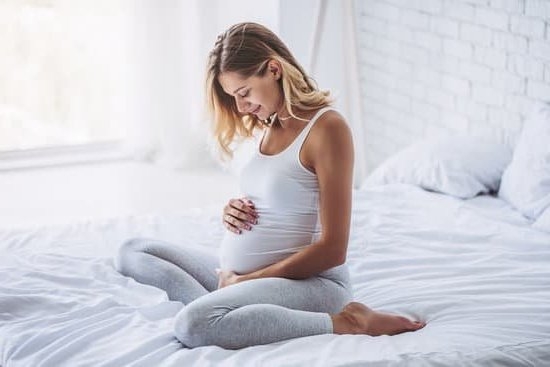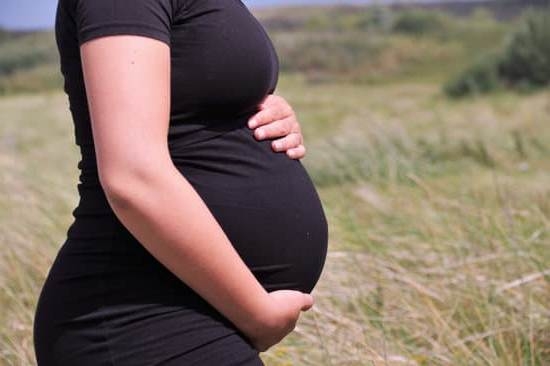Introduction
Hemorrhoids (also called piles) can be a painful and uncomfortable condition, especially during pregnancy. Women may experience increased symptoms due to the increased pressure on their rectum caused by the growing baby. Women may also find it difficult to effectively treat hemorrhoids due to safety concerns surrounding medications and other treatments during pregnancy.
So what can you do if you have hemorrhoids while pregnant? In this article, we answer the most common questions about how to shrink hemorrhoids in pregnancy. We provide tips on how to manage the symptoms and discuss some of the safest treatment options available for pregnant women with hemorrhoids. We then highlight five simple steps that women can take to help prevent flare-ups and reduce discomfort associated with hemorrhoids during pregnancy. Finally, we provide advice for when it’s time to call a healthcare professional for further evaluation or treatment.
When it comes to treating hemorrhoids in pregnancy, lifestyle modifications are always advised first such as increasing dietary fiber intake, drinking more fluids, getting regular exercise and avoiding standing for long periods of time. Topical medications such as creams or ointments may be recommended for relief from any burning or itching sensations associated with the condition. Pregnant women should also make sure they’re using a stool softener so as not to strain during bowel movements – straining is a major cause of hemorrhoid flare-ups in general and even more so during pregnancy. If these measures don’t provide relief, doctors may suggest trying Sitz baths which involve sitting in warm water several times a day aided by topical hydrocortisone creams or medicated wipes containing witch hazel extract. Hemorrhoid cushions may also help relieve soreness associated with hemorroids when sitting down too long during pregnancy. For particularly painful cases of hemorrhoids that don’t respond to at home remedies, some minimally invasive surgical procedures may be suggested although rarely since there are still potential risks involved even with minor operations like rubber band ligation whereby a doctor places a special band around the base of an external hemorrhoid which cuts off its circulation leading it gradually shrink over time before eventually falling off after some weeks.
What Is Pregnancy-Related Hemorrhoid Development?
Pregnancy-related hemorrhoid development is an increasingly common condition resulting from changes in the body during pregnancy that can amplify abdominal pressure and swollen veins in the rectal area. It is often caused by increased size of the uterus, constipation due to hormonal changes, rapid expansion of the uterus during labor, or straining during childbirth. Hemorrhoids in pregnancy typically begin to appear either within weeks after conception or around the third trimester of pregnancy. These inflamed veins create anal discomfort, swelling, itching and even bleeding at times which can be very painful and uncomfortable for pregnant women. Fortunately, there are many strategies available to help minimize and potentially resolve any symptoms associated with hemorrhoids in pregnancy.
Risks and Warning Signs of Hemorrhoids in Pregnancy
When pregnant, women are at an especially high risk for developing hemorrhoids. During pregnancy, elevated hormones and increased pressure from the baby can cause the veins in the rectum to become swollen and inflamed. Hemorrhoids can also occur as a result of increased strain during bowel movements, which is common during pregnancy due to hormonal changes in the body that causes a person’s digestion system to slow down. Warning signs of hemorrhoids include pain or itching around the anus area, bleeding with bowel movements and swelling around the anus.
If you are pregnant and find yourself experiencing any of these warning signs, it is important to speak with your doctor right away. Your doctor may suggest some lifestyle modifications such as increasing fibre intake through foods like vegetables, fruits and whole grains; drinking plenty of fluids; avoiding sitting or standing for long periods of time; and exercising regularly in order to assist with reducing some of the pressure that is put on your pelvic region from carrying a baby. Additionally, your doctor may suggest using over-the-counter topical creams that contain hydrocortisone or witch hazel to reduce swelling and provide relief from itching or burning sensations related to hemorrhoids. Your doctor may also recommend taking warm baths in order to reduce pain associated with external hemorrhoids or using stool softeners if constipation is at the root of your problem. Finally, if necessary, your healthcare provider may suggest undergoing surgery for severe cases of hemorrhoids.
Treatment Options
Clinical Solutions: If you are pregnant and dealing with hemorrhoids, it is important to seek medical attention from your physician at the first sign of discomfort. Depending on the severity of the condition, a doctor may prescribe medications, topical solutions, or medical interventions such as sclerotherapy or elastic band ligation in order to shrink and relieve problematic hemorrhoids.
Home Remedies: In addition to seeking professional intervention for treatment of hemorrhoids during pregnancy, there are also several home remedies that can be used to soothe symptoms and alleviate inflammation. These natural methods include soaking in warm baths infused with Epsom salts or other herbal teas and regular application of cold compresses. For internal hemorrhoid relief and shrinking, natural fiber supplements can be taken daily while adding plenty of fiber-rich foods in the diet such as leafy greens, fruits, beans and legumes. Increasing physical activity through gentle exercises like walking or prenatal yoga can also help regulate bowel movements for further preventative action.
How to Use Home Remedies to Shrink Hemorrhoids In Pregnancy
Home remedies are a safe and drug-free way to reduce symptoms of hemorrhoids during pregnancy. Here are some suggestions:
1. Squatting when going to the bathroom: Instead of sitting in a chair, try squatting on the toilet instead. This position does not increase pressure on the anal region and defecation is easier.
2. Warm sitz baths: Soaking the affected area in shallow warm water can relieve irritation and help reduce swelling. The duration should be no more than 15 minutes at a time for this remedy to be effective.
3. Fiber-rich diet: Eating foods rich in fiber helps soften stools and reduce strain during bowel movements. Examples of high-fiber foods include whole grain breads and cereals, nuts, fruits, leafy greens, beans, and lentils.
4. Exercise regularly: Exercise can increase circulation, which helps support your pelvic floor muscles around the rectal region to ease swollen veins due to straining during constipation or other bowel problems. Engaging in low-intensity activities such as swimming or walking is recommended during pregnancy instead of more strenuous activities such as running or weight lifting.
5. Cold therapy: Cold compresses or an ice pack applied directly over the affected area may help alleviate inflammation and provide relief from pain flare-ups associated with hemorrhoids during pregnancy.
Prevention Tips
There are several steps you can take to help protect yourself from developing and exacerbating hemorrhoid flare-ups while pregnant. Drinking plenty of water throughout the day will help to maintain proper hydration and lubricate your digestive system, reducing your chances of getting constipated. Eating a well-balanced diet full of fruits, vegetables, whole grains, and proteins is also essential for digestive tract health during pregnancy. Moreover, make sure you get regular exercise and refrain from sitting or standing in the same position for long periods of time as this will increase your risk of constipation. Additionally, taking a fiber supplement or consuming foods that are high in fiber can help to soften stools and reduce hemorrhoid pain. Finally, talk to your doctor about using stool softeners on an as-needed basis; when used properly these medications can assist with easing bowel movements and reducing pain associated with hemorrhoids.
Life After Pregnancy
After the birth of your baby, the most important thing you can do to reduce the risk of hemorrhoids coming back is to keep good bowel habits. Make sure to drink plenty of water and fiber-rich fruits and vegetables throughout the day. Regular exercise will help promote better digestive health as well. Try to avoid things like straining during bowel movements, sit in a shallow tub with warm water for 15 minutes after defecating, and add fiber to your diet if you’re currently not eating enough of it. Additionally, applying an over-the-counter hemorrhoid cream or hydrocortisone cream may also soothe area itching and irritation. You can also use a cold compress or ice pack on the affected area while changing your position every 20 minutes or so. Finally, make sure to take time for yourself–especially if you have young children! A regular daily break will allow you some peace and quiet away from the stressors that come with motherhood!
Conclusion
Ultimately, we hope this article has helped you feel better informed about how to treat hemorrhoids during pregnancy. It is important to keep in mind that despite the discomfort and inconvenience associated with them, most cases of hemorrhoids are harmless and can be managed through the treatments suggested here. To care for yourself and your baby’s health, remember to reduce the occurrence of straining during a bowel movement by making dietary changes such as adding more fiber. Also, focusing on good hygiene practices such as cleaning around your anus after each bowel movement may also help to reduce irritation. Additionally, try to avoid activities or postures that put extra pressure on your rectal area such as lifting heavy weights or sitting for long periods of time. Finally, pelvic floor exercises may help keep your veins healthy while minimizing discomfort from constipation. If none of these strategies are helping, talk to your doctor who may recommend a medical procedure like banding or injection sclerotherapy to speed up recovery time.

Welcome to my fertility blog. This is a space where I will be sharing my experiences as I navigate through the world of fertility treatments, as well as provide information and resources about fertility and pregnancy.





